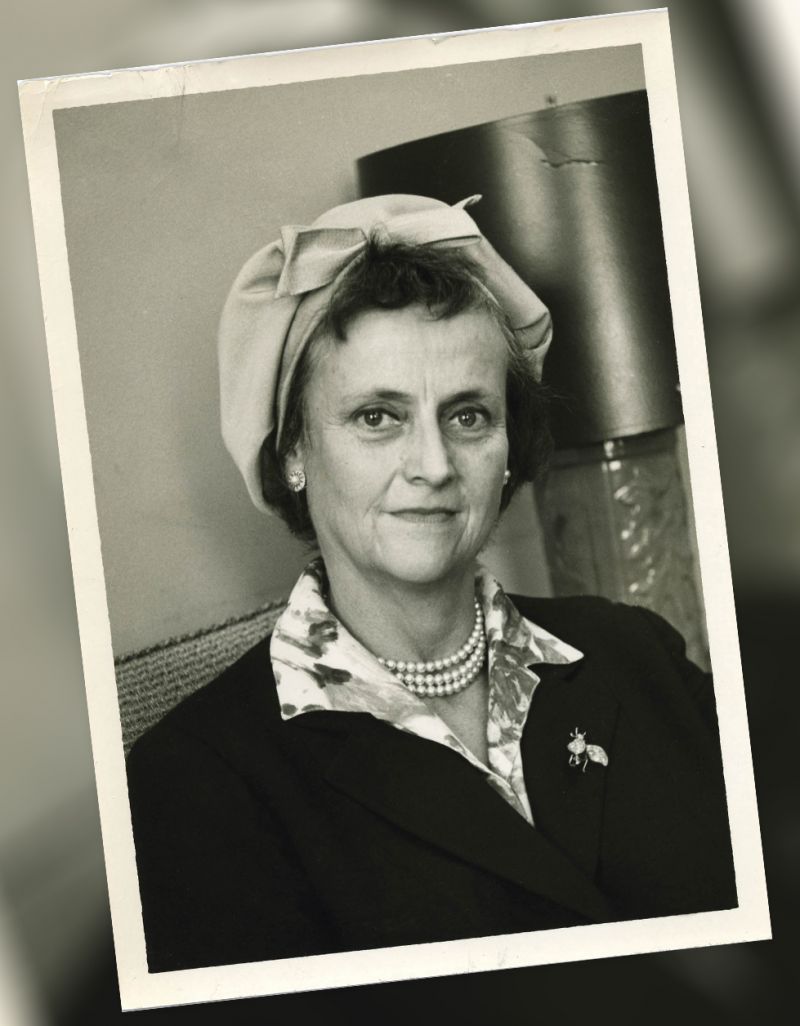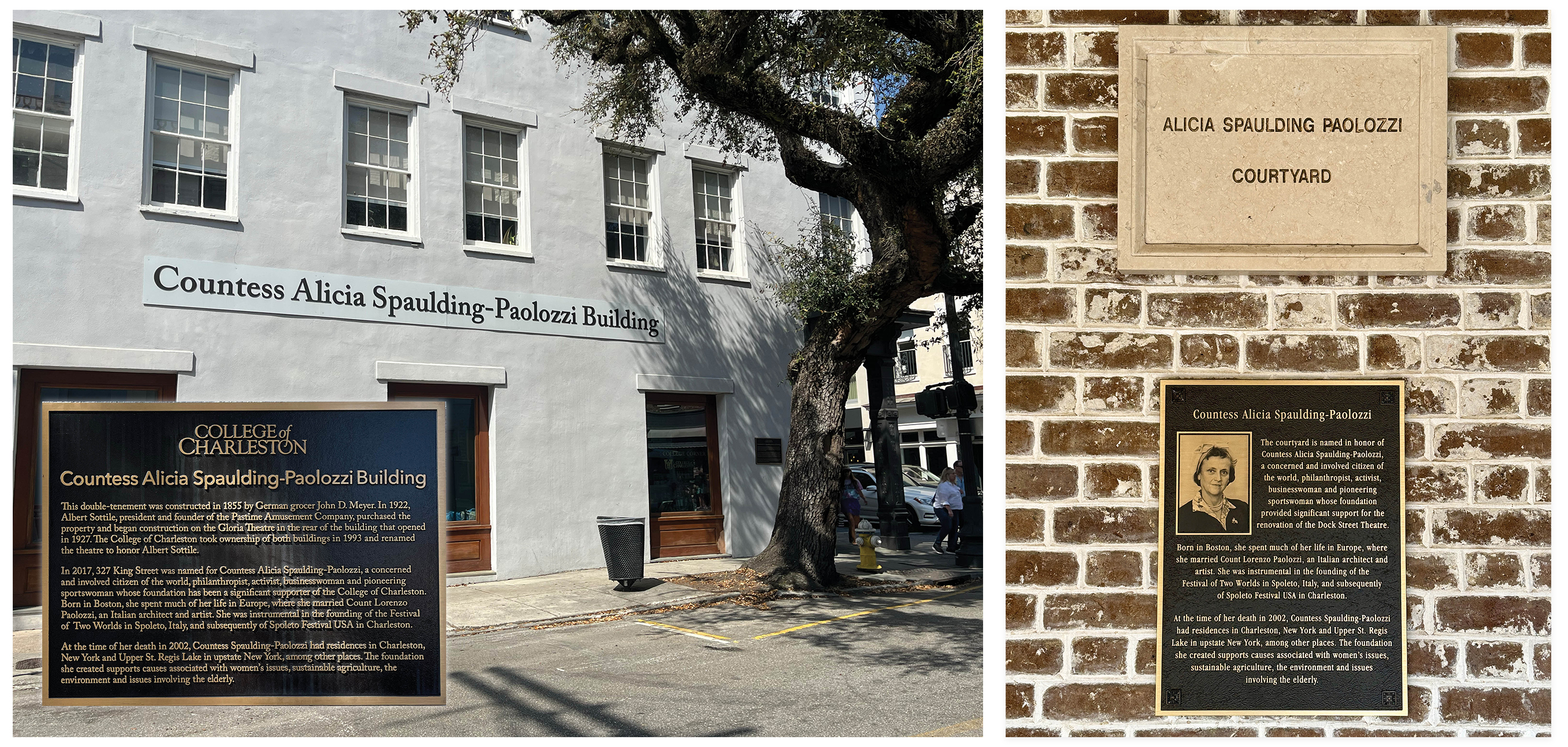Countess Alicia Spaulding Paolozzi helped to found the Spoleto Festival and gave generously to other organizations

Countess Alicia Spaulding-Paolozzi
With Spoleto Festival USA upon us, the name game has returned: we’ll talk about the performers who are coming, what works will be debuted or renewed, and which new artist’s career will be launched. We can also recall the names of those who helped launch the festival here nearly 50 years ago.
Certainly, we remember composer and originator Gian Carlo Menotti, who started the eponymous festival in a hill town in Italy in 1958; and there is former College of Charleston president Ted Stern, who steered the festival for years after its 1977 opening. But though her name is literally carved in stone in the city, the role of Countess Alicia Spaulding-Paolozzi is often obscured.

After the death of Countess Alicia Spaulding Paolozzi in 2002, two Spoleto venues honored her: You can see plaques to her memory in the courtyard of the Dock Street Theatre and on the side of College of Charleston’s Sottile Theatre.
Born in Boston “on or about May 12, 1917,” as her biography states, the heiress to the United Fruit Company took to the arts naturally as the daughter and niece of the prominent Spaulding brothers, collectors who helped the Boston Museum of Fine Arts acquire many of its European masterpieces. Schooled at St. Timothy’s in Maryland and the University of Lausanne, Switzerland, Paolozzi helped found the original Festival of Two Worlds in Spoleto, Italy, and married Count Lorenzo Paolozzi in Rome, maintaining homes in New York and Charleston, where she helped found and served as a board member of what is now known as Spoleto Festival USA. “My commitment has been to the positive, productive effects of arts festivals on villages, towns, and areas,” she once said. She was a humanitarian, as well, serving on the United States Commission for UNESCO and on the board of the International Council for Women, acting as its liaison to the United Nations.
Paolozzi’s many gifts to the city during her life and after her death in 2002, through her Spaulding-Paolozzi Foundation, reflect her passion for the environment, sustainability, and the rights and conditions of women and the elderly, and include a major donation to the International African American Museum.